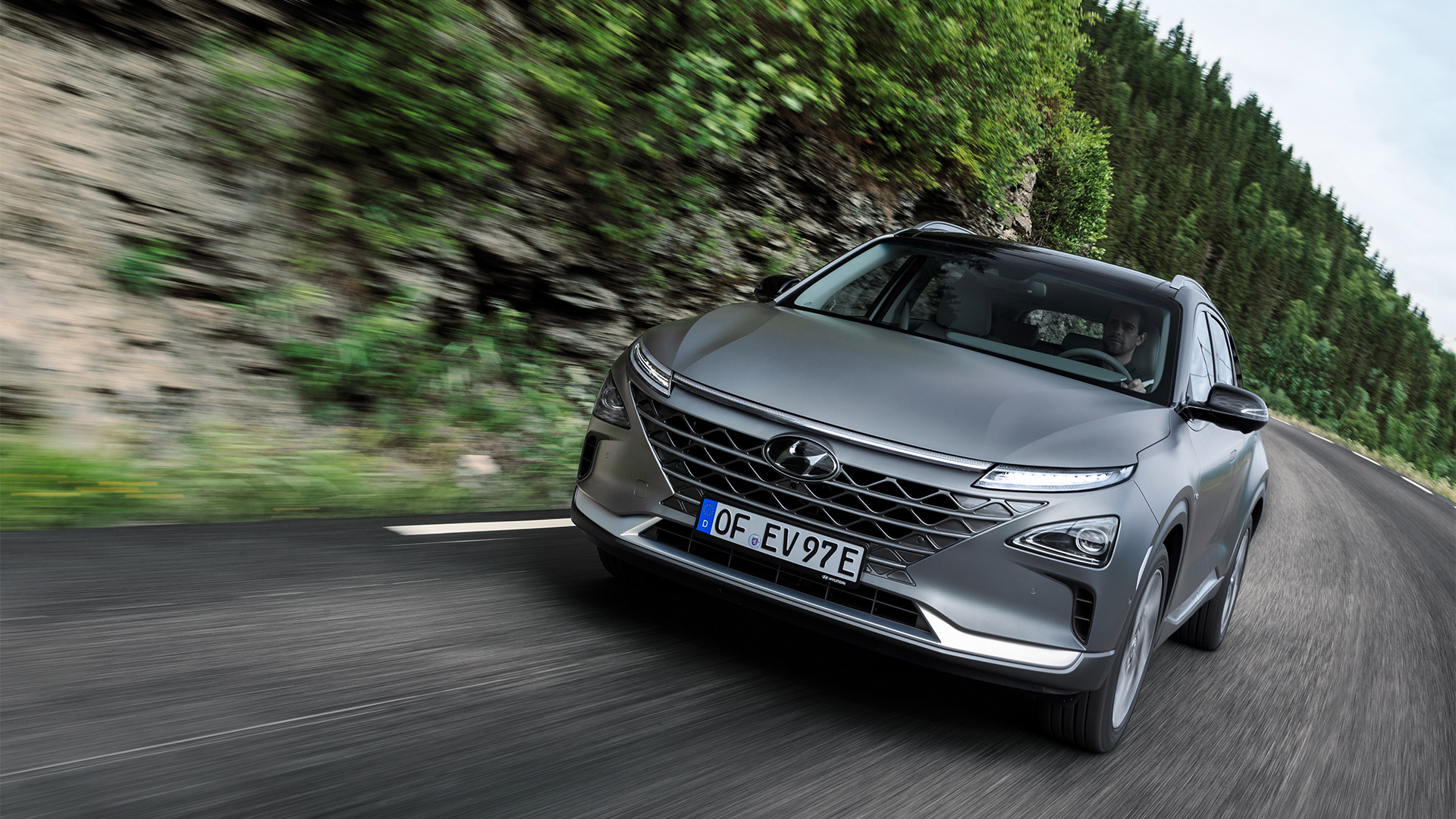
This year's CES 2024 show in Las Vegas was littered with language learning models, in-car AI assistants and the ubiquitous gargantuan infotainment displays that look set to fill our future vehicle interiors.
But now the dust has settled, it appears that the subject of hydrogen and a refocus on fuel cell-powered passenger vehicles was a key takeaway overlooked by the masses.
Hyundai's central stand at the show revolved around hydrogen and the company's drive to produce clean energy from waste product, such as plastics and biomass, but it also confirmed its commitment to powering heavy goods vehicles with H2.
Hyundai has the world’s highest market share in hydrogen-powered vehicle sales, having bet early on the technology when it mass produced and marketed the Nexo in 2018. It also offers the production XCIENT Fuel Cell truck, which can manage 400km on a single fueling.
But at CES, it announced that its HTWO initiative will focus on the production, storage, transportation, and utilization of hydrogen in numerous areas across the Hyundai Group, including steel, construction, air mobility, marine, robotics and, most importantly, the passenger car.
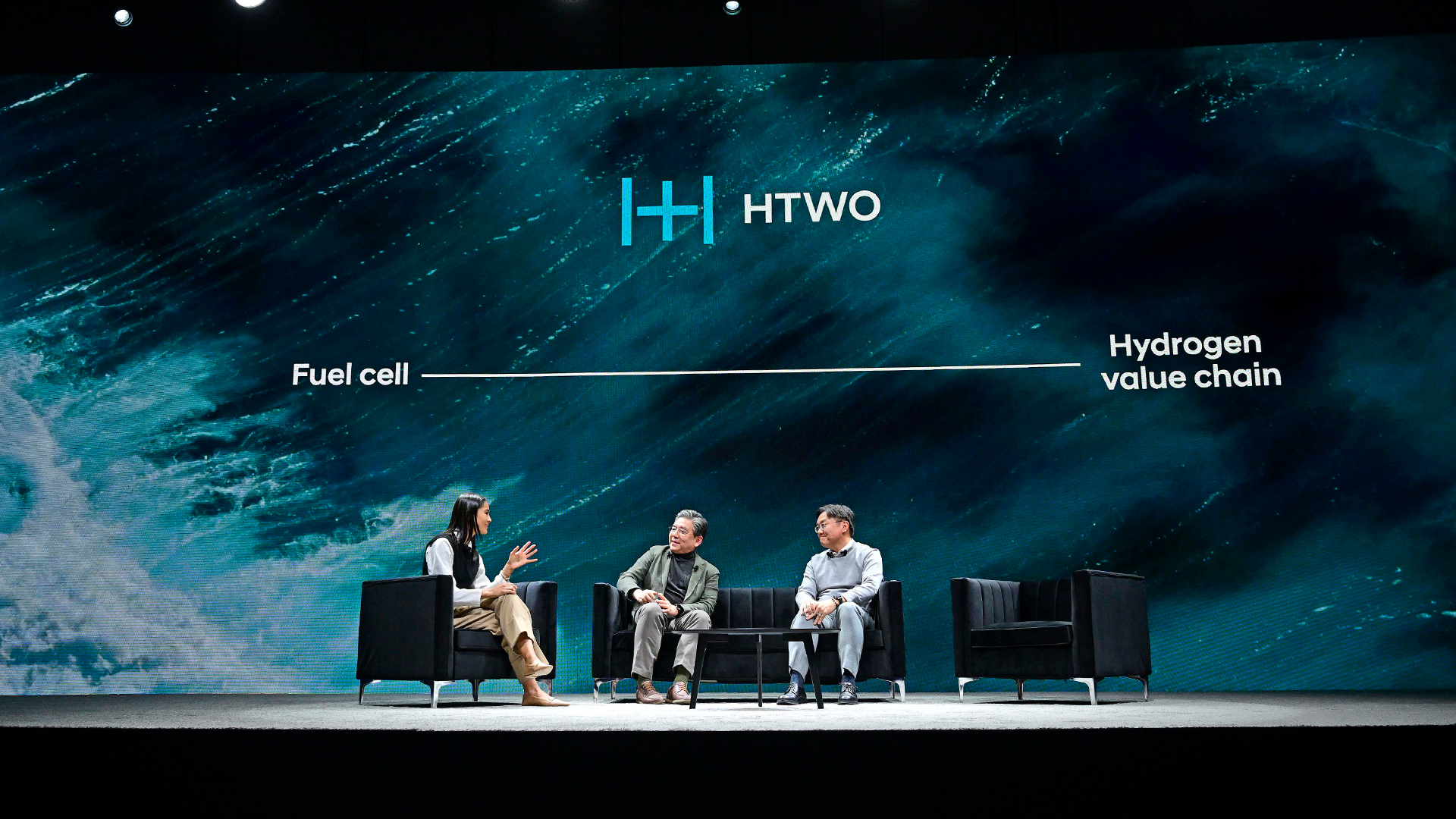
"We see hydrogen being a major player in the heavy goods industry, as the technology suits the requirements of large trucks. The predictable driving patterns also make it easier to create the infrastructure required. Learnings from this can then potentially inform future passenger vehicles," Mark Freymueller, Senior Vice President Global Commercial Vehicle Business at Hyundai Motor Company told me at CES this year.
Although Hyundai made it very obvious that hydrogen was a focus, Honda – another early proponent of hydrogen fuel cell technology with its FCX Clarity model – was keen to point out that it too sees hydrogen as an important factor in future transport.
"What I have in my mind is that the [battery] EV era comes first, and the next phase is fuel cell cars. The fuel cell era might take some more time," Inoue Katsushi, President of Honda Motor Europe told Autocar.
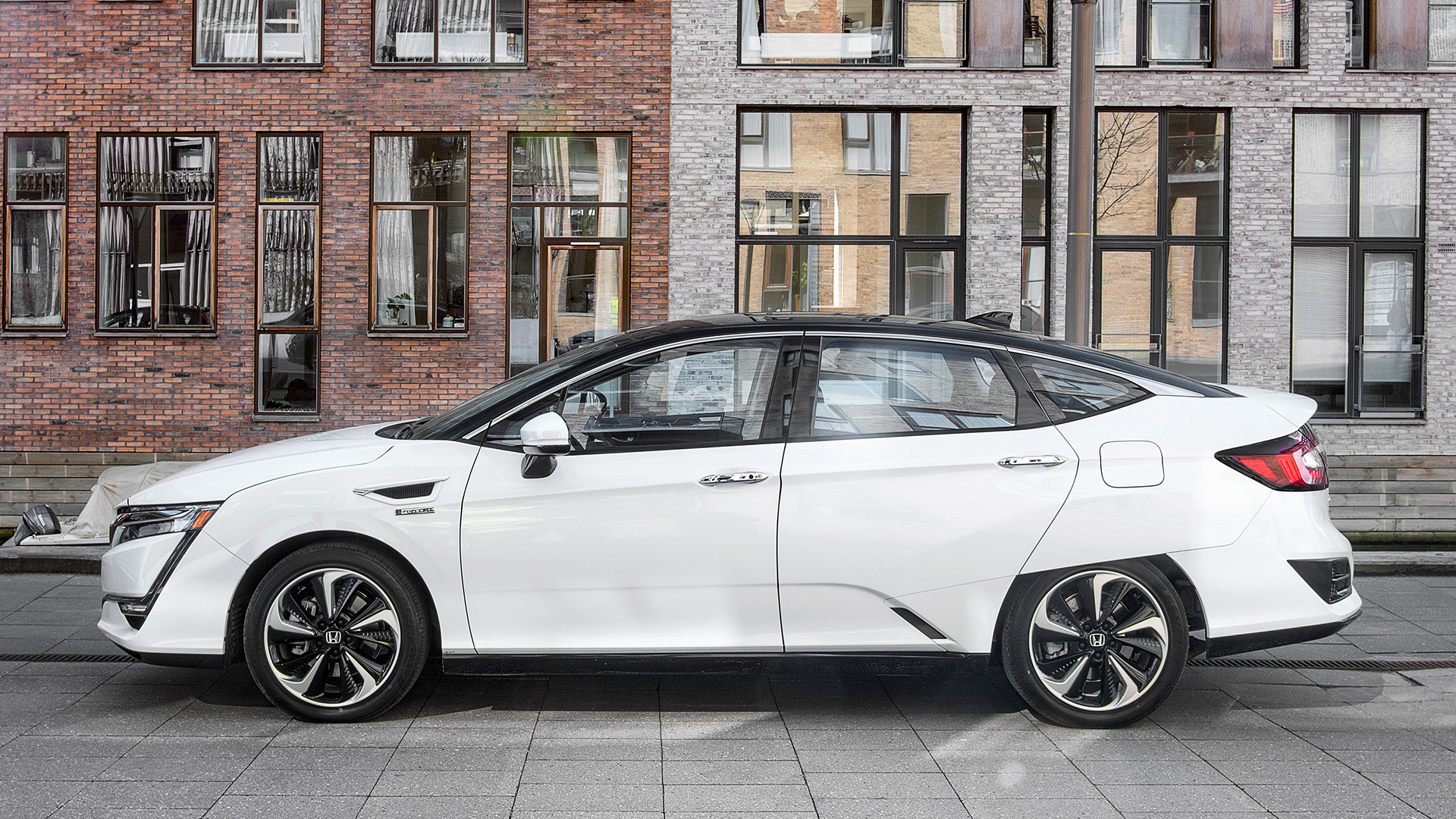
Inoue went on to explain that the relatively low sales volume of Honda’s FCX Clarity could be attributed to to poor hydrogen fueling infrastructure, as well as the high price of the model itself. But he also said that hydrogen was still very much part of the business plan, so long as the infrastructure is put in place.
Like Hyundai, Honda claims it is focusing its hydrogen research efforts on the commercial vehicle and industrial sectors for now.
Hydrogen is back on the agenda
BMW recently announced that its flagship factory in Munich will only produce EVs from 2027, but the assembly line will remain flexible and open to other alternative fuels.
"Hydrogen remains an important alternative," BMW board member Milan Nedeljković told Top Gear. "That's why we have a fleet of hydrogen cars out testing and why we’re working intensively on improving the technology further. Alternatives need to be considered; that's why we keep our facilities flexible to hydrogen and to other technologies," he added.
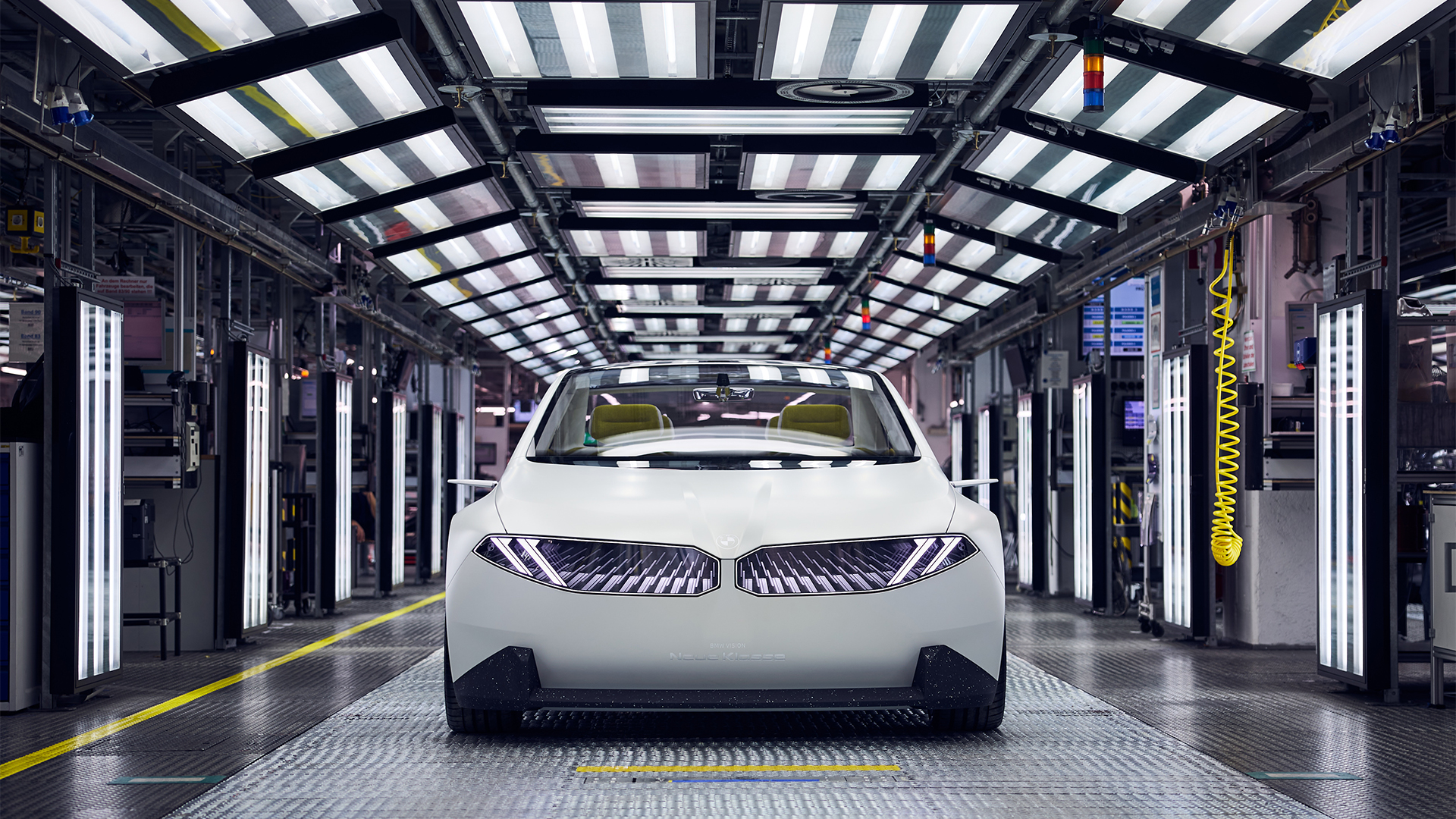
Executives from both Hyundai and Honda touted 2040 as a rough estimate for when we might see the mass adoption of hydrogen passenger vehicles. This is reliant on the refueling infrastructure reaching critical mass, as well as the price of technology coming down to a more palatable level for customers.
Because of this, both Honda and Hyundai have confirmed that they are focussing their hydrogen efforts on powering manufacturing processes and replacing diesel as the fuel of choice for heavy goods and commercial vehicles, but it is telling that some of the biggest names in auto manufacturing haven't ruled it out for passenger cars.
After all, zero emissions motoring doesn't have to solely rely on battery electric technology, as hydrogen inherently offers increased all-electric driving range and faster refueling times, thanks to the ability to store a physical fuel in on-board tanks.
Despite the promise of next-gen solid-state battery technology offering impressive energy densities, the pressure on the electric grid could struggle to keep up with charging demand and refueling times are unlikely to match those offered by hydrogen any time soon.
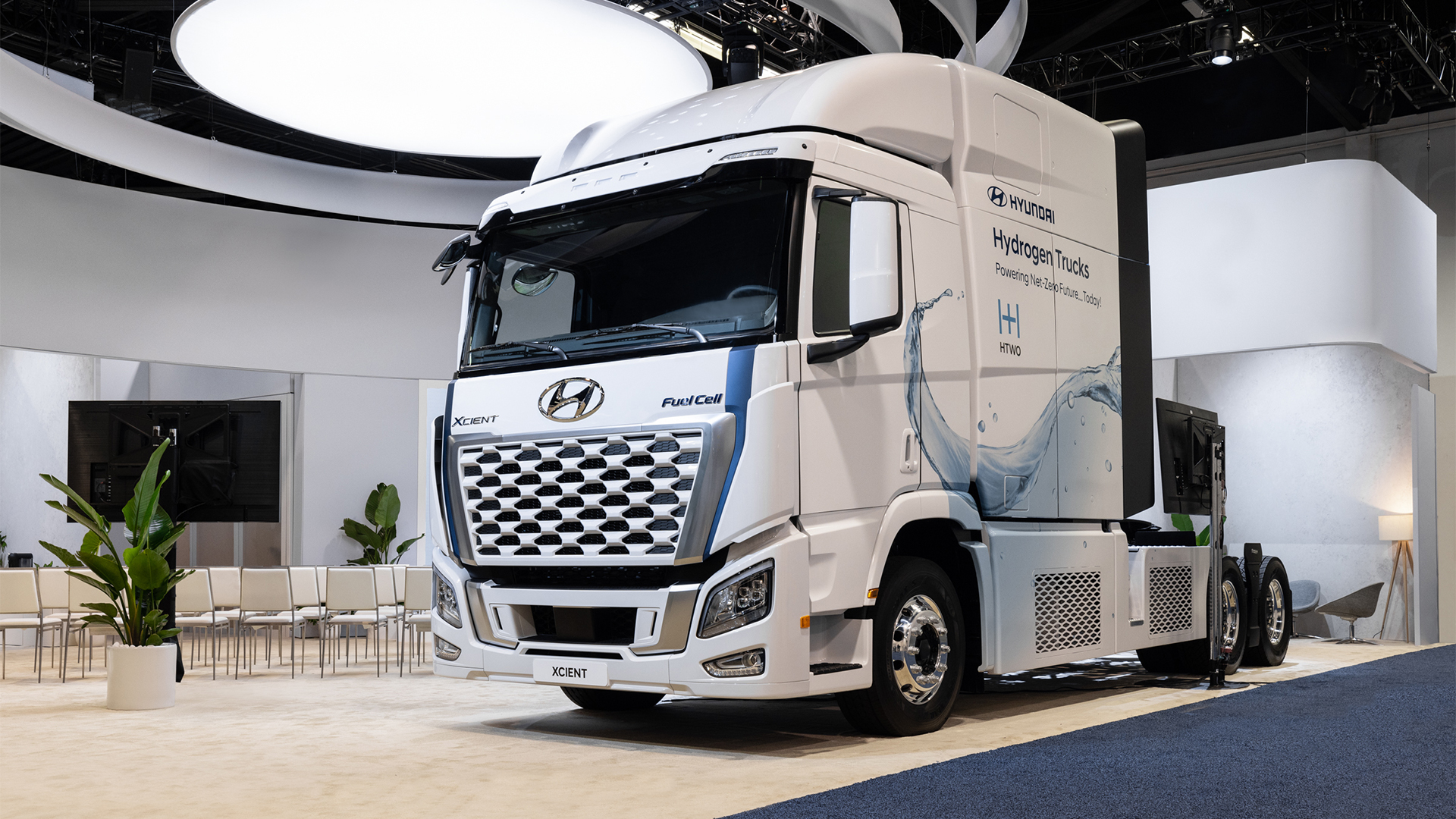
Hyundai's Mark Freymueller claims this is one of the reasons pure battery technology is difficult in the heavy goods industry, as charging the massive batteries required causes too much strain on local grids.
Once hydrogen technology matures and the refueling infrastructure catches up, the alternative fuel could simply be another choice on the table for the consumer and a way for car makers to reach their self-imposed zero local emissions targets.







